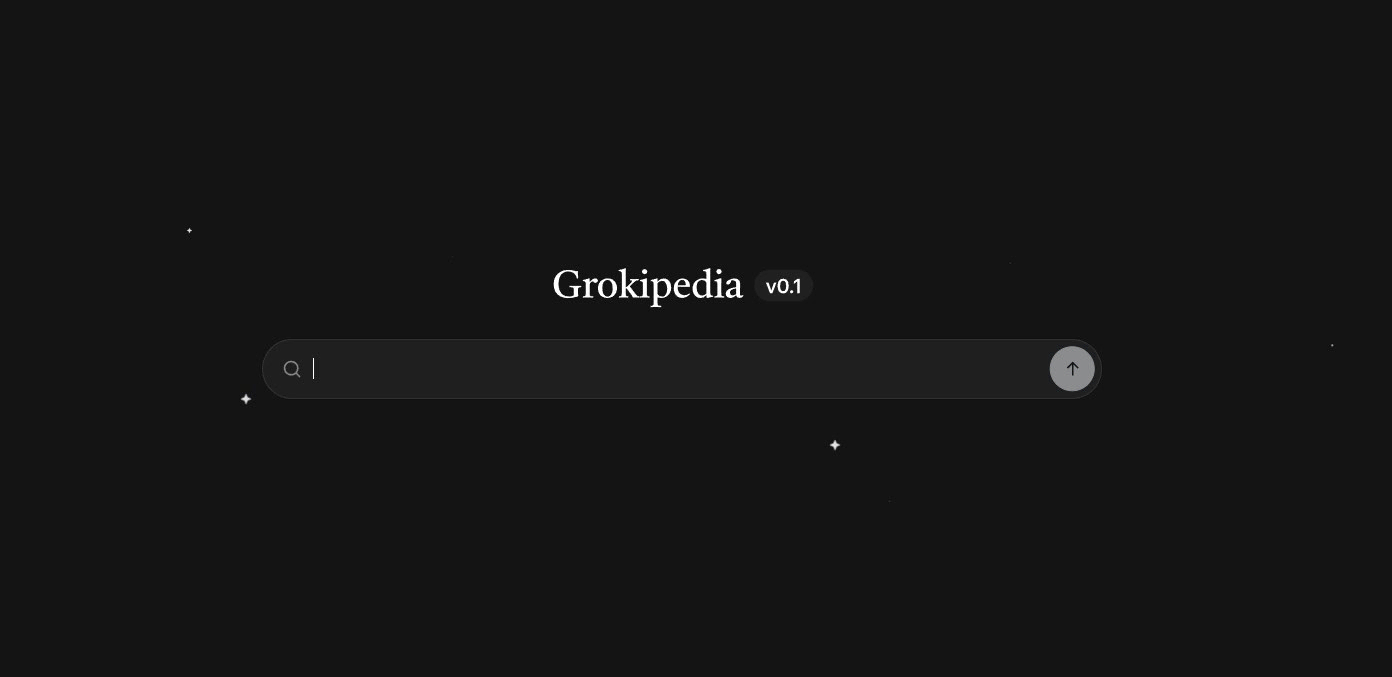Technology
Elon Musk Launches Grokipedia, Wikipedia’s Rival Encyclopedia

Elon Musk has officially launched Grokipedia, a new online encyclopedia aimed at rivaling Wikipedia. Powered by Musk’s xAI models, Grokipedia seeks to provide an alternative to the well-established platform, which has long dominated the online knowledge landscape. Musk asserts that Grokipedia will “purge out the propaganda” found on Wikipedia and claims it will surpass its competitor “by several orders of magnitude in breadth, depth, and accuracy.”
Concerns Over AI Reliability
Despite Musk’s ambitious declarations, Jimmy Wales, co-founder of Wikipedia, expressed skepticism regarding Grokipedia’s capabilities. Speaking at a recent summit hosted by CNBC, Wales argued that the technology behind Grokipedia—namely Large Language Models (LLMs)—is not equipped to produce a reliable encyclopedia. He pointed out that LLMs, including those powering Grokipedia, are known for making significant errors and fabricating information, a phenomenon often referred to as “AI hallucinations.”
Wales recounted an incident where a Wikipedia community member discovered that an LLM-generated source had fabricated book citations, leading to the chatbot “very happily mak[ing] up books.” To evaluate the accuracy of LLMs, Wales frequently explores obscure topics, such as his wife’s identity, which consistently yields plausible yet incorrect results. “We know ChatGPT and all the other LLMs are not good enough to write wiki entries,” Wales remarked, underscoring Wikipedia’s reliance on human verification and community oversight.
Bias Claims and Editorial Integrity
Musk and his supporters have criticized Wikipedia for what they describe as “woke bias,” alleging that the platform excludes conservative media from its sources. Grokipedia’s entry on Wikipedia itself accuses the site of possessing a “systemic ideological bias.” In response, Wales staunchly defended Wikipedia’s editorial guidelines, emphasizing the importance of sourcing neutrality. “We don’t treat random crackpots the same as The New England Journal of Medicine, and that doesn’t make us woke,” he stated.
Wales further noted that maintaining neutrality and being meticulous about sources is vital for the platform. The Wikimedia Foundation acknowledges that AI presents challenges, particularly concerning the decline in human visits and the increased scraping of Wikipedia data to train AI models. Despite these challenges, Wales believes that Wikipedia’s approach remains superior. “This human-created knowledge is what AI companies rely on to generate content; even Grokipedia needs Wikipedia to exist,” he remarked.
Ultimately, Wales views the most significant threat not as a direct AI replacement but rather as the potential for LLMs to create convincing fake websites that could mislead the public. As Grokipedia enters the competitive landscape of online knowledge sharing, the debate over the reliability and integrity of AI-generated information continues to unfold.
-

 Science3 months ago
Science3 months agoToyoake City Proposes Daily Two-Hour Smartphone Use Limit
-

 Top Stories3 months ago
Top Stories3 months agoPedestrian Fatally Injured in Esquimalt Collision on August 14
-

 Health3 months ago
Health3 months agoB.C. Review Reveals Urgent Need for Rare-Disease Drug Reforms
-

 Technology3 months ago
Technology3 months agoDark Adventure Game “Bye Sweet Carole” Set for October Release
-

 World3 months ago
World3 months agoJimmy Lai’s Defense Challenges Charges Under National Security Law
-

 Lifestyle3 months ago
Lifestyle3 months agoVictoria’s Pop-Up Shop Shines Light on B.C.’s Wolf Cull
-

 Technology3 months ago
Technology3 months agoKonami Revives Iconic Metal Gear Solid Delta Ahead of Release
-

 Technology3 months ago
Technology3 months agoApple Expands Self-Service Repair Program to Canada
-

 Technology3 months ago
Technology3 months agoSnapmaker U1 Color 3D Printer Redefines Speed and Sustainability
-

 Technology3 months ago
Technology3 months agoAION Folding Knife: Redefining EDC Design with Premium Materials
-

 Business3 months ago
Business3 months agoGordon Murray Automotive Unveils S1 LM and Le Mans GTR at Monterey
-

 Technology3 months ago
Technology3 months agoSolve Today’s Wordle Challenge: Hints and Answer for August 19









